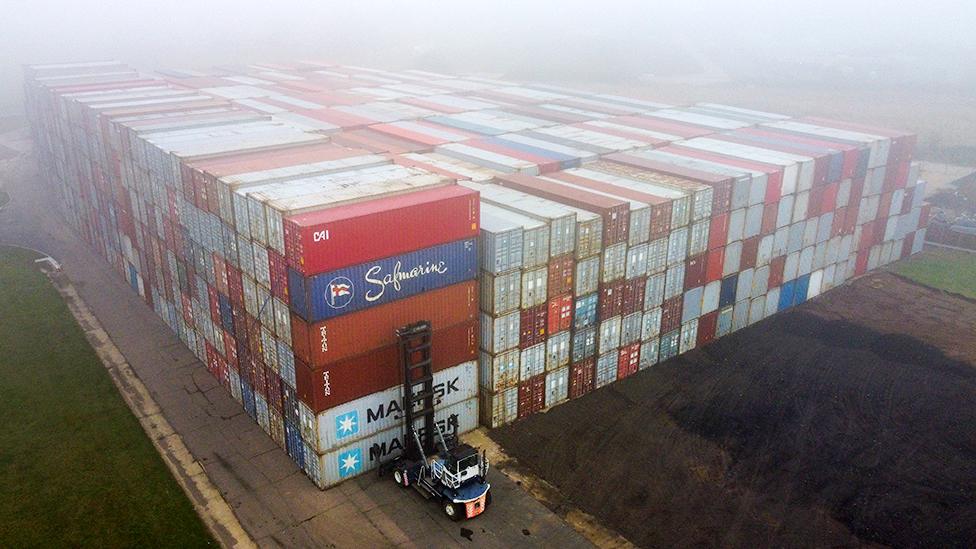Are trains the answer to Suffolk's traffic headache?
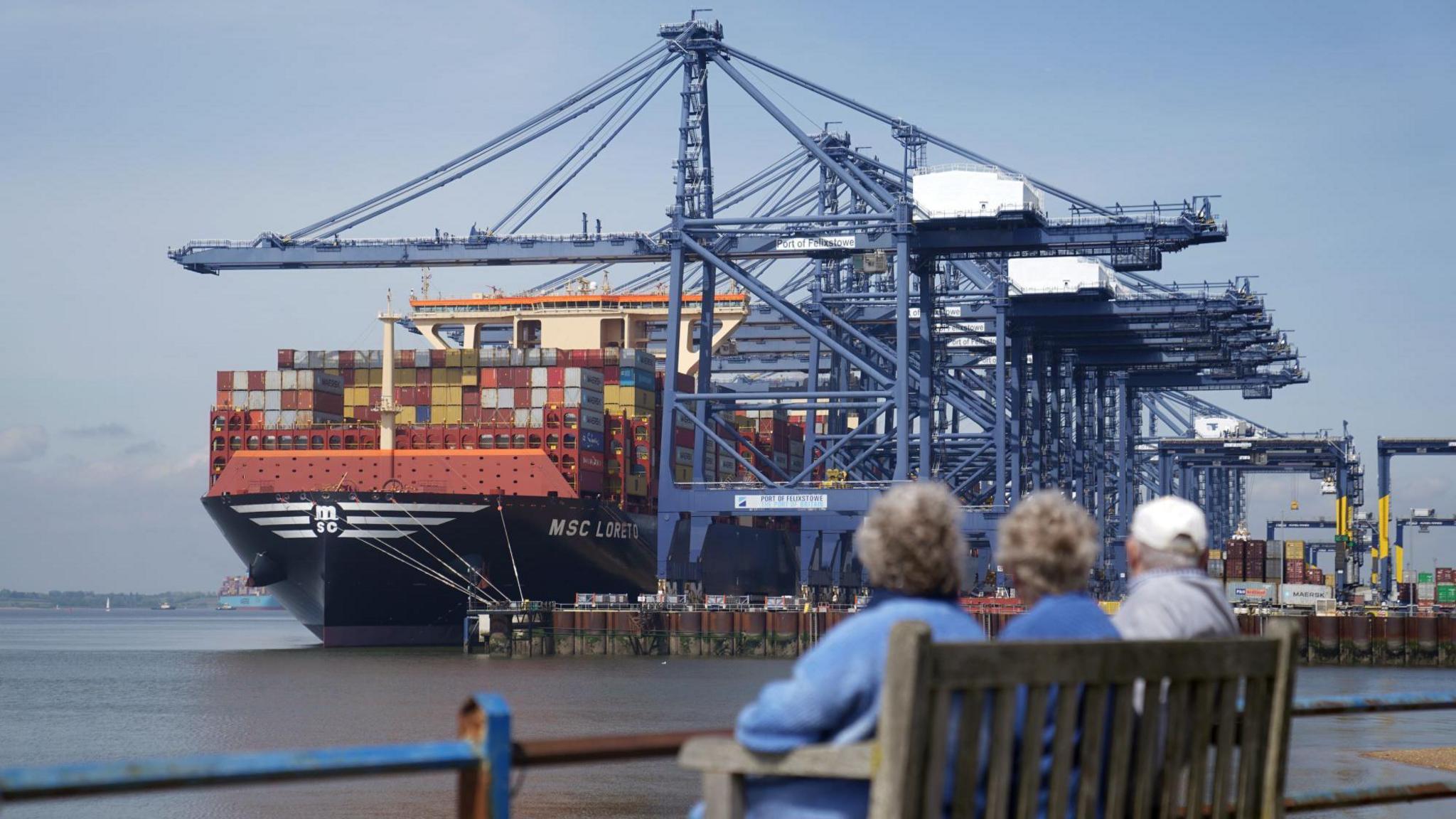
The world's largest cargo ship, MSC Loreto, docked at the Port of Felixstowe on 1 May
- Published
Thousands of container lorries travel the roads of Suffolk every day, moving freight in and out of the three seaside ports in the county.
That can mean pressure on the nearby roads, with trucks getting stuck in worsening traffic.
Department for Transport figures show HGVs make up 13.5% of the 60,000 vehicles using the A14 near Ipswich each day.
Is there a solution; what does the industry think and what are the general election hopefuls saying about it?
Where are the issues?
There are ports at Felixstowe, Ipswich and Lowestoft, with the A14 and A12 being the main roads used by container lorries.
The A14 passes over the Orwell Bridge on the outskirts of Ipswich and when the bridge closes due to an incident or high winds, it means traffic is diverted into the town.
Traffic regularly hits a standstill at the Copdock interchange, where the A14 and A12 meet.
Planned improvements have been pushed back to a later round of government funding.
Would more rail help?
In short, yes.
Business body The Eastern Powerhouse says electrification of the rails at Felixstowe and improvements at Bury St Edmunds will help move more freight on trains.
Suffolk Chamber of Commerce has called for the next government to "upgrade all A14 pinch points in Suffolk (including the Orwell Bridge and Copdock Interchange) in 2025-30" and to prioritise upgrades of the Ely and Haughley rail junctions.
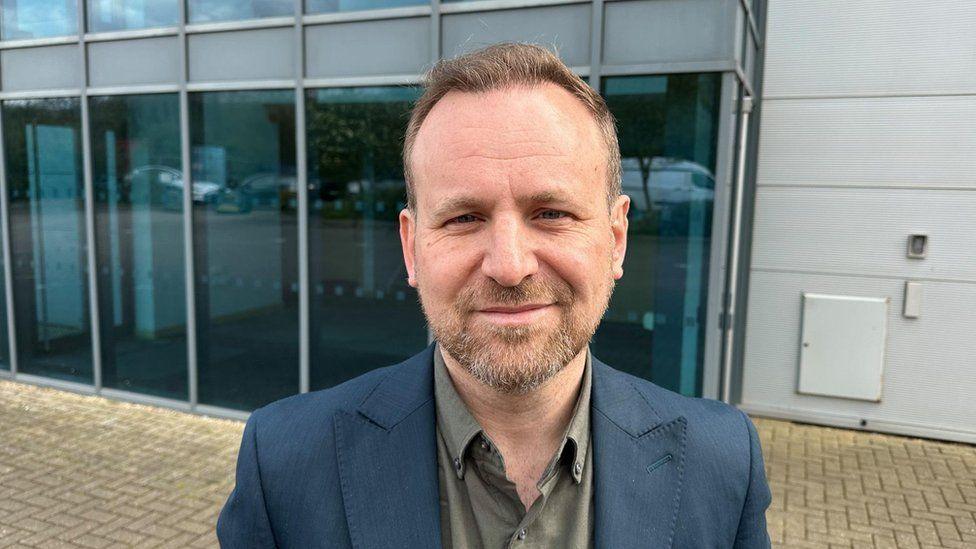
Gary Jeffreys said shipping giant Maersk had invested significantly in rail
Danish shipping giant Maersk, which operates out of the Port of Felixstowe, said it would like to use trains more.
Gary Jeffreys is managing director for the business in the UK.
"We've invested quite significantly in rail, I think that needs to be the focus of both the government and local government to ensure we've got the right rail paths," he explained.
"Of course the Orwell Bridge is always an issue and I'm sure will be a bottleneck, but that's why I think in terms of the future, it's around how we build sustainable solutions."
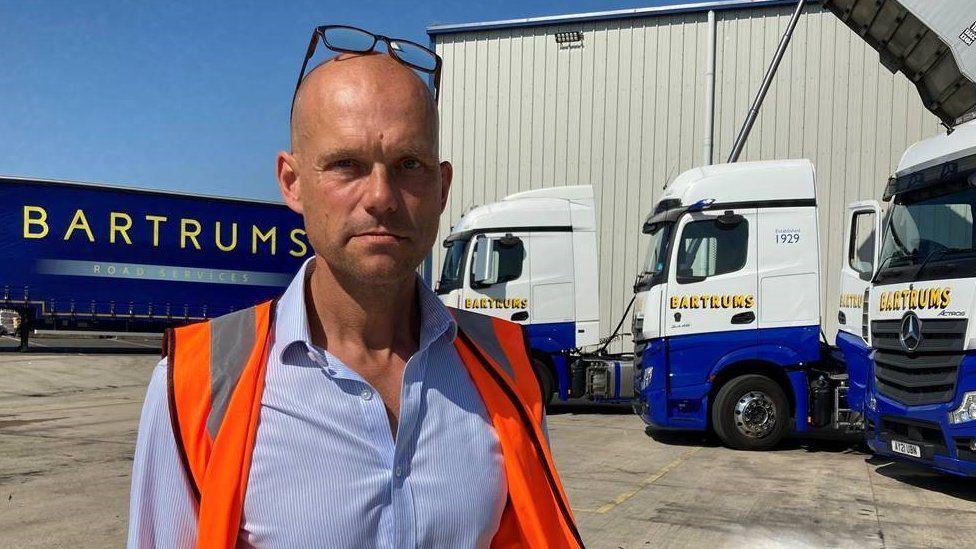
Tremanye Johnson is the operations director at bulk haulage company Bartrums
Tremanye Johnson, the operations director at bulk haulage company Bartrums, based in Eye, is apprehensive about investing in rail.
Businesses would need solid infrastructure in place, he said.
"There aren't many businesses that have got that scale.
"The majority of the deliveries we do; the end customer would expect and need that delivery on a curtain-sided trailer."
Mr Johnson further explained that using the rail would mean less control over the movement of deliveries.
What are politicians saying?
In December 2023, the Conservative government announced a target to grow rail freight "by at least 75%", external before 2050.
Labour say "the delivery of freight operations on the rail network will remain within the private sector" but that they want to simplify the system for people.
The Liberal Democrats say they want to extend and complete electrification of the rail network.
Green Party policy is to "reduce the demand for freight transport by localising the economy and expanding the rail freight network and make greater use of waterways, where suitable."
Follow Suffolk news on Facebook, external, Instagram, external and X, external. Got a story? Email eastofenglandnews@bbc.co.uk, external or WhatsApp us on 0800 169 1830
Related topics
Stories like this
- Published22 May 2024
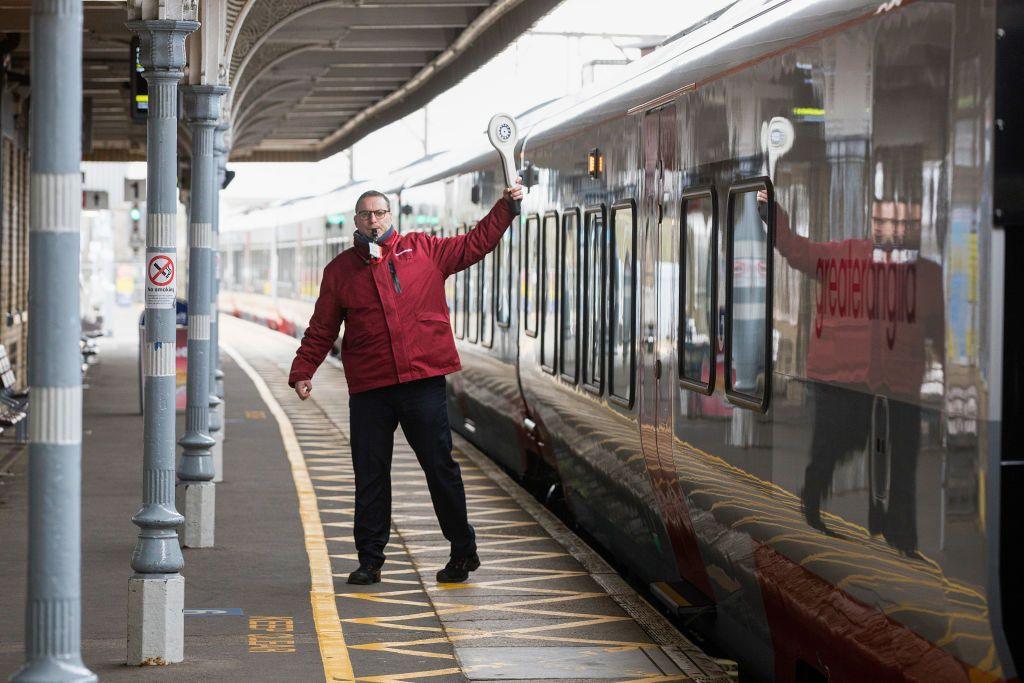
- Published29 September 2023
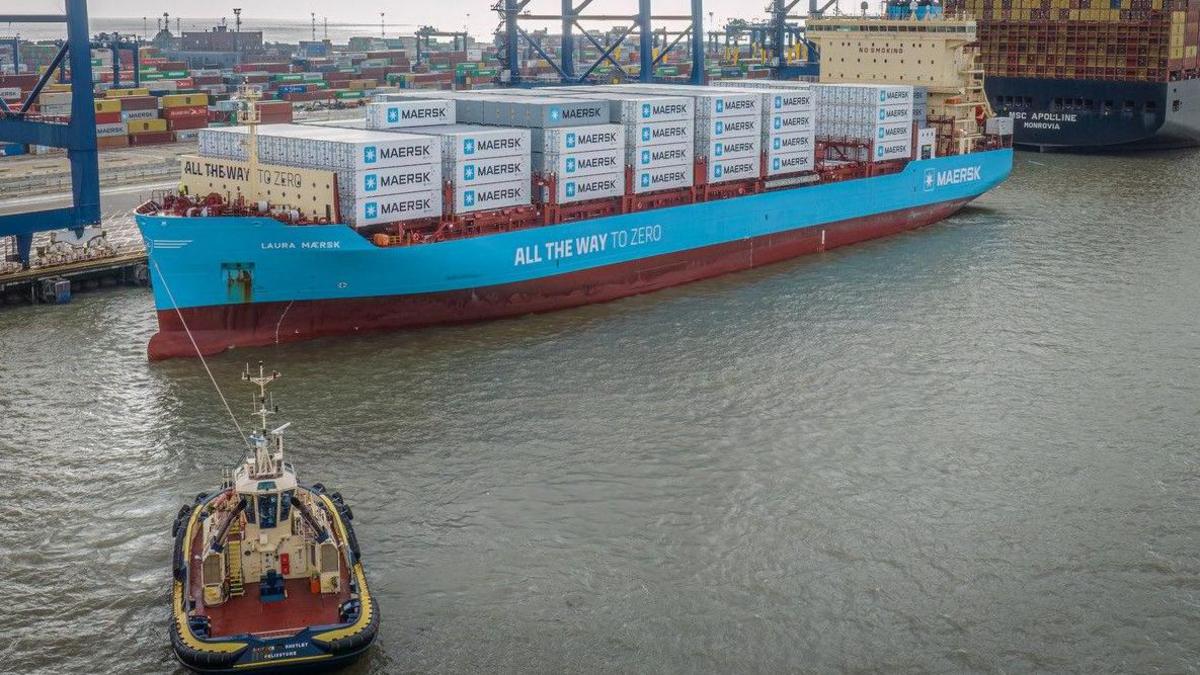
- Published10 November 2021
